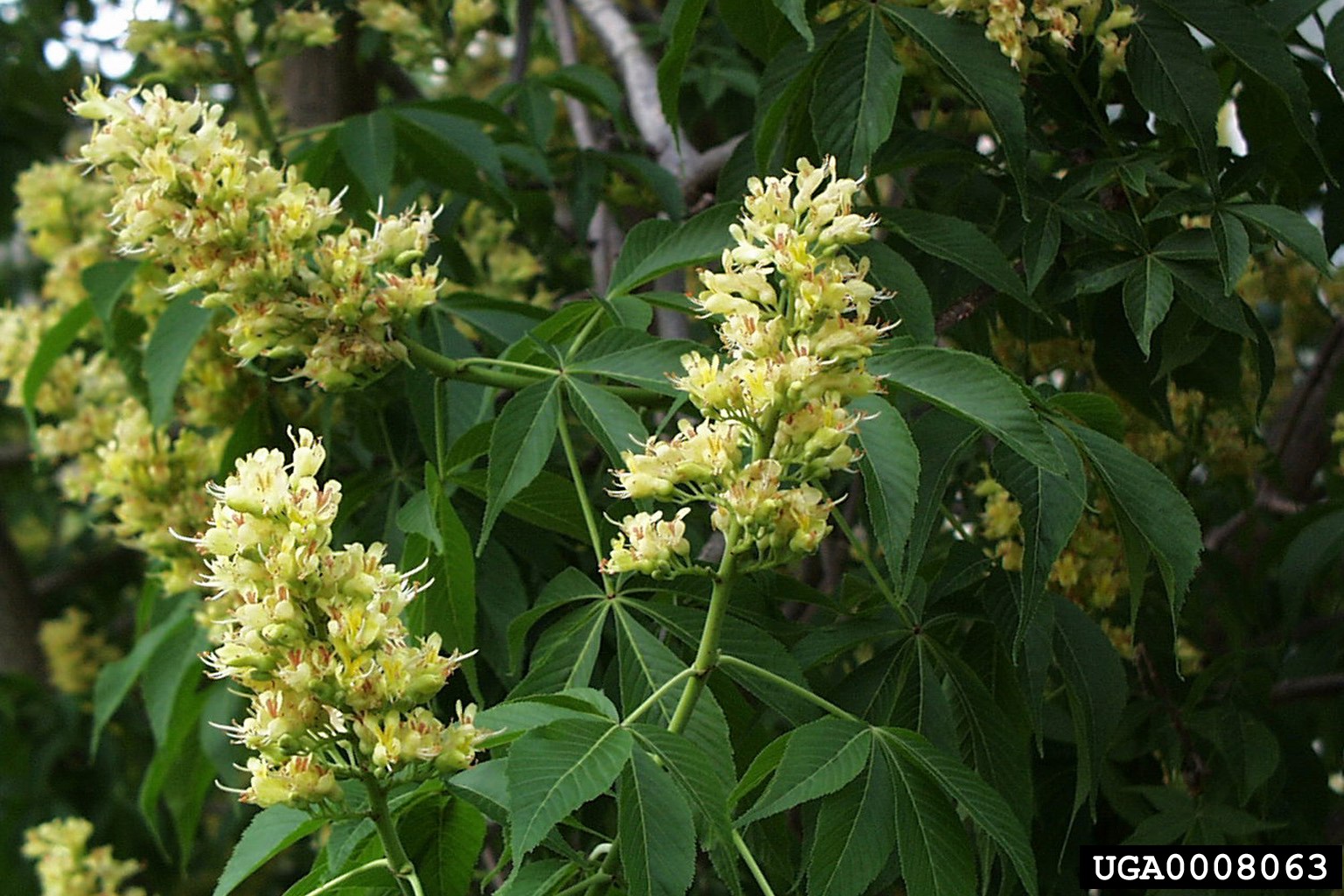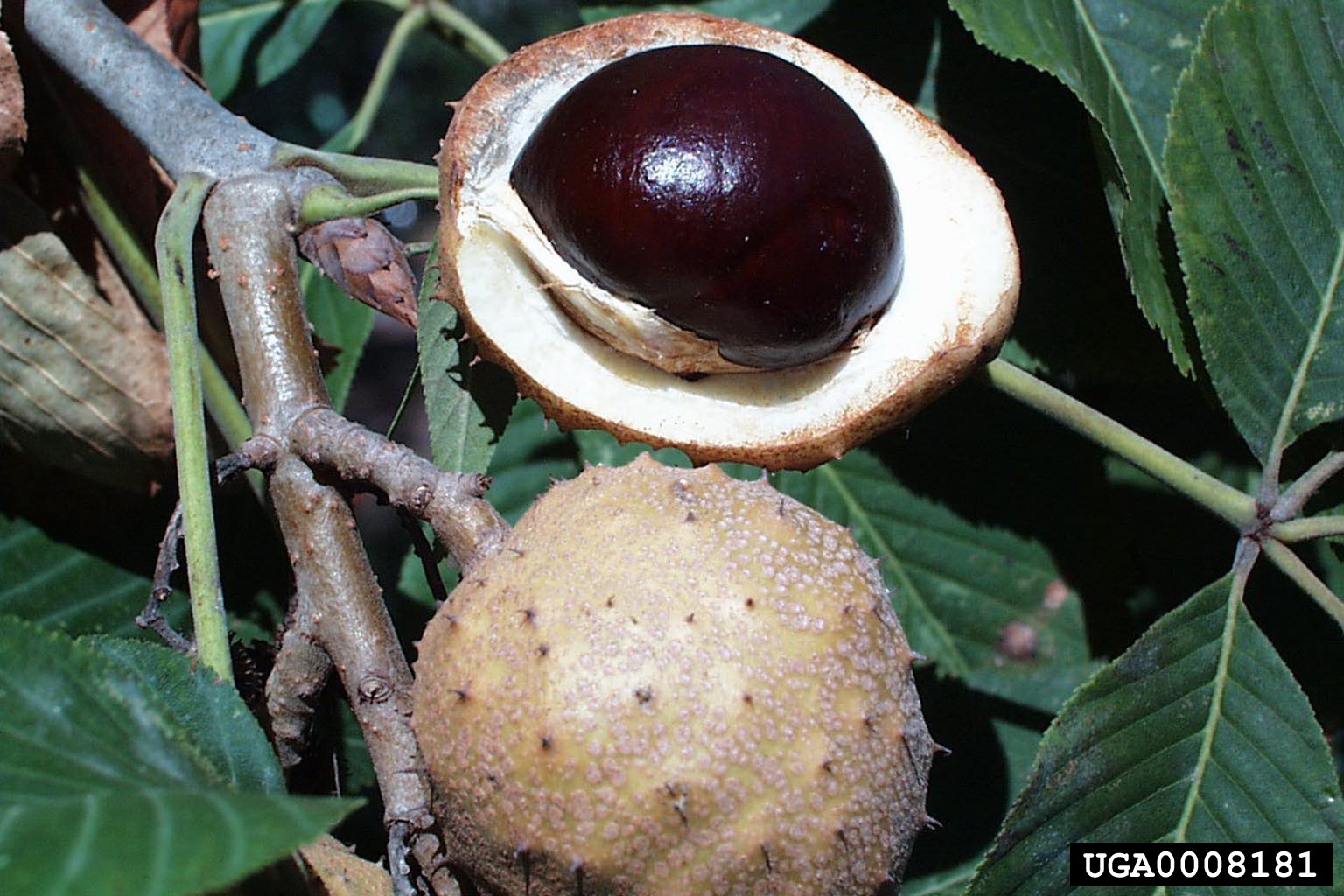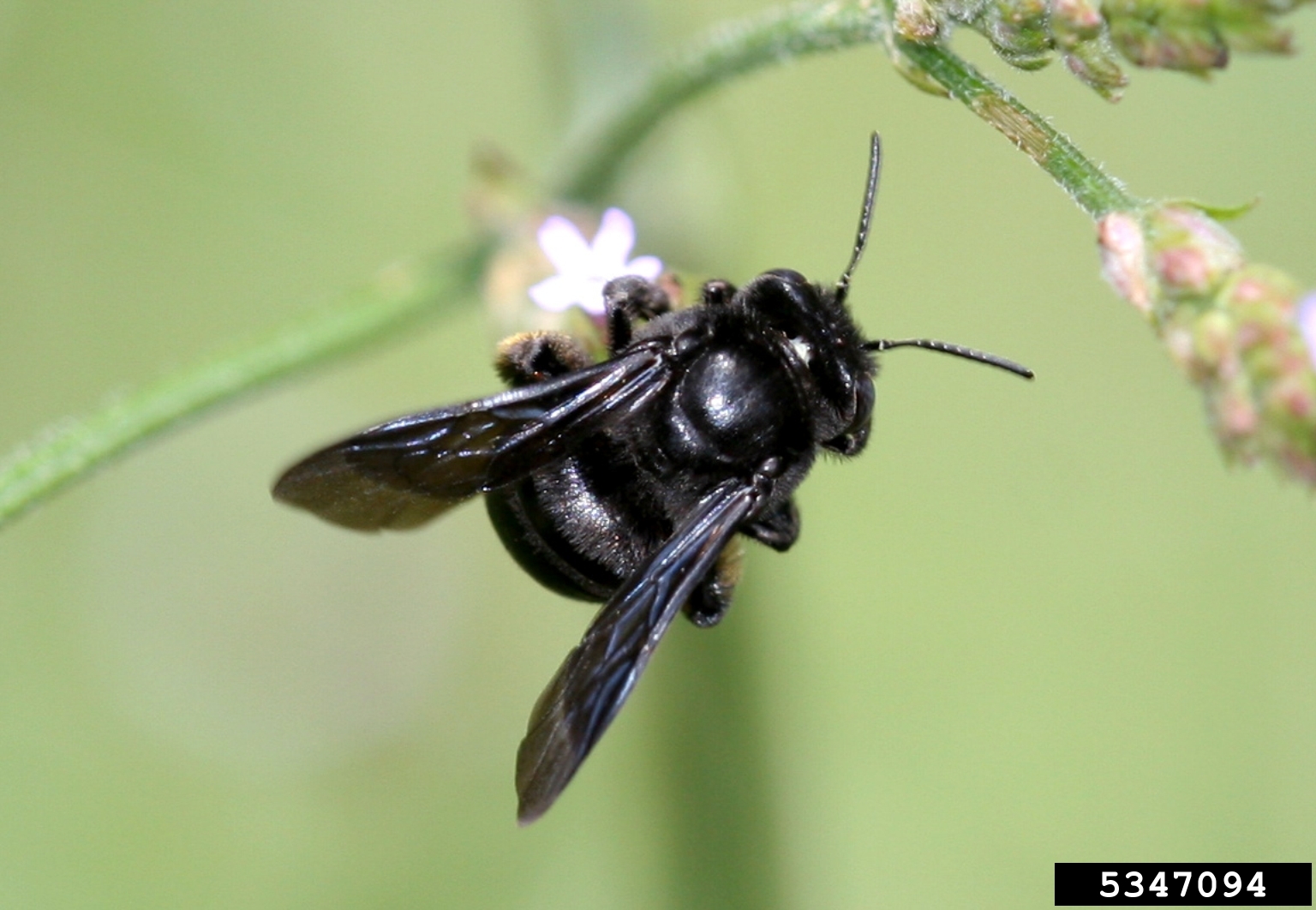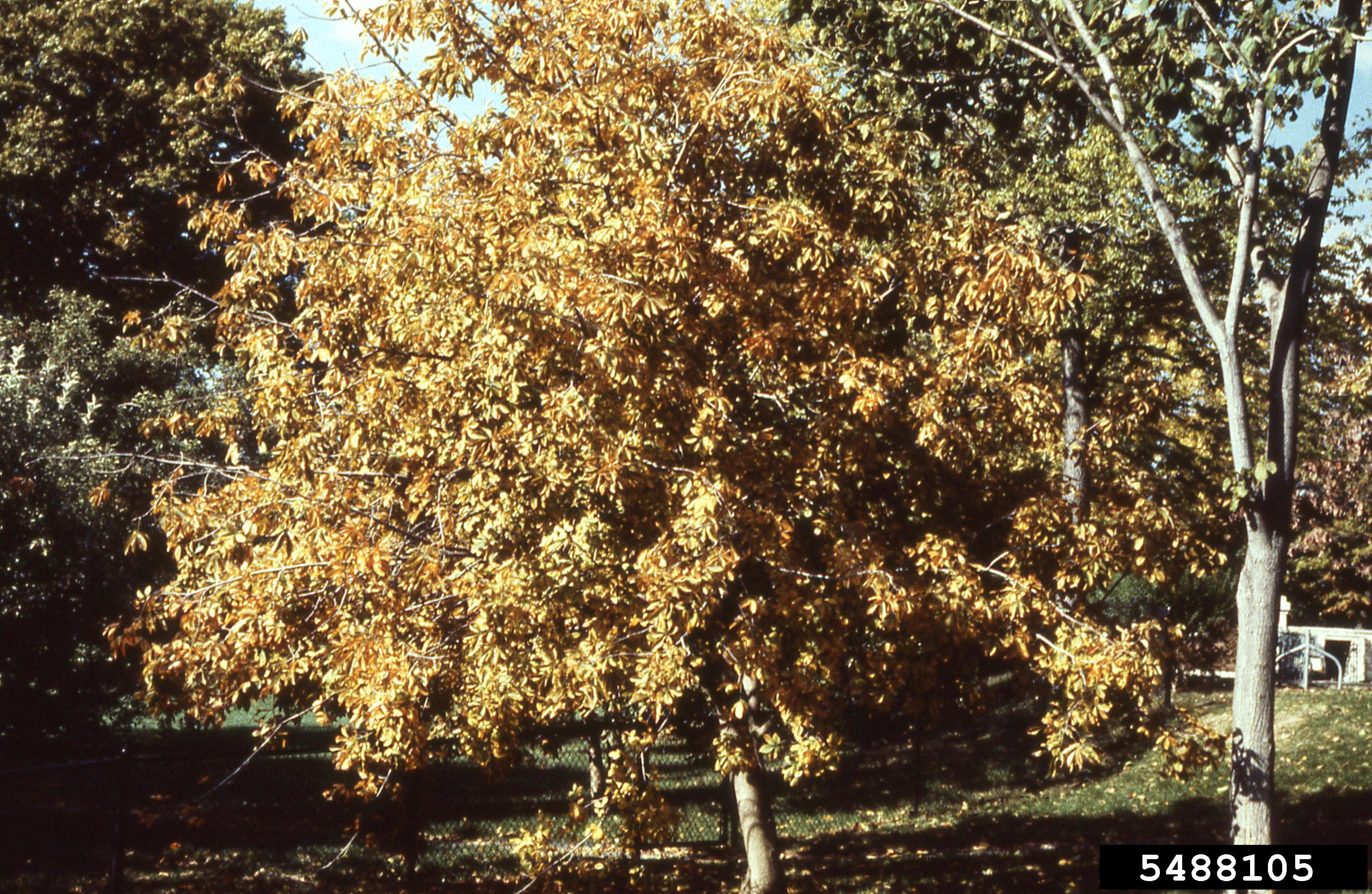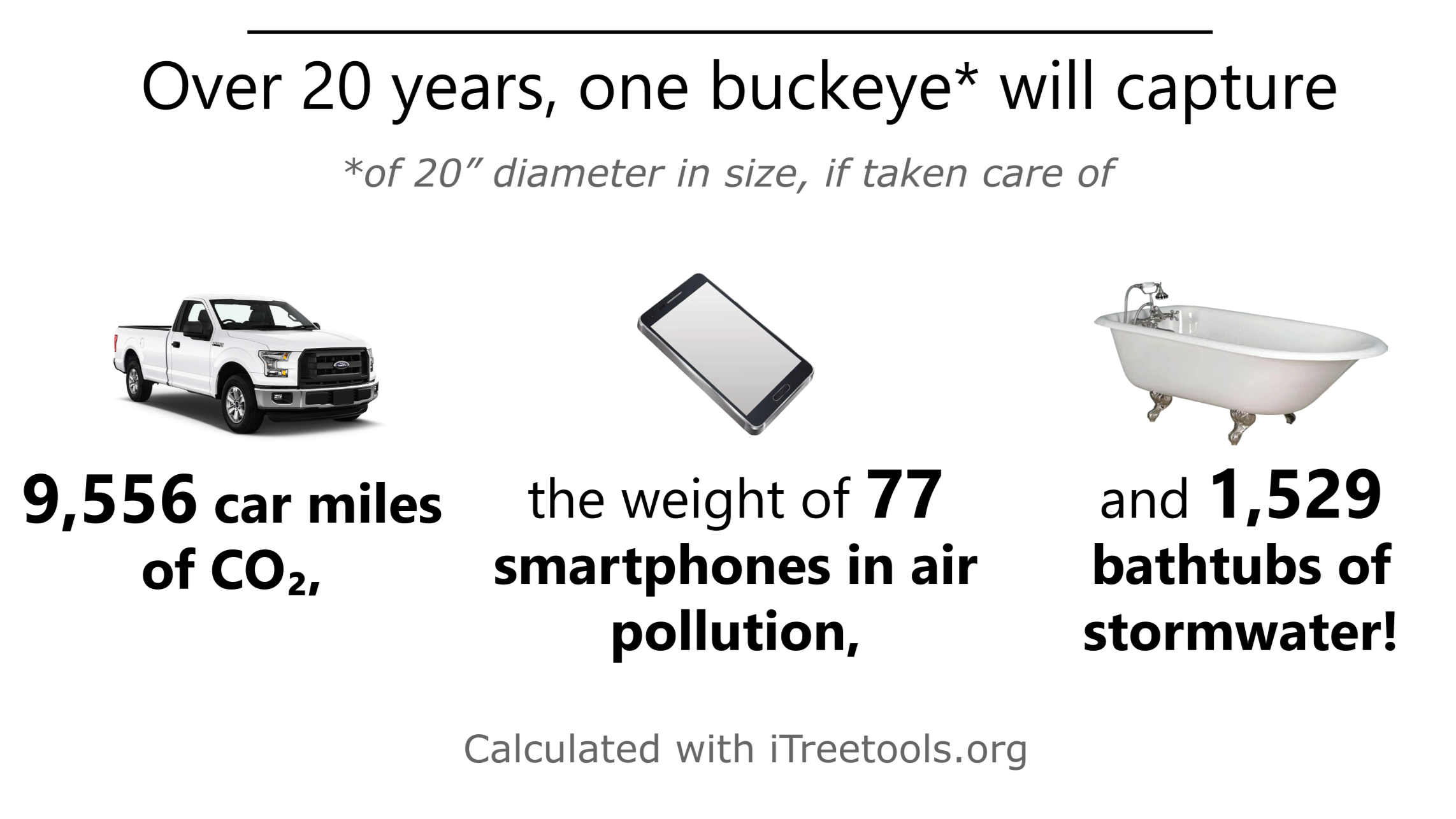Tree Highlight: Buckeye
Buckeye
Aesculus glabra (Family Sapindaceae)
The buckeye's palmately compound leaves and yellow flowers
The basics
Buckeye (Aesculus glabra) is found from western Pennsylvania to eastern Mississippi, and from Nebraska and Kansas to Alabama. It grows up to 70 feet tall and 2 feet in diameter and has palmately compound leaves with 5 leaflets. The buckeye is known for its early spring flowers and the shiny and dark brown seeds with a light-colored spot contained within warty husks. The nuts resemble chestnuts, but they are rounder, glossier and most importantly, not good for human consumption.
Did you know?
- The shape and color of the seeds resemble a deer’s eye and gives the tree its common name.
- Historically, it was believed that good fortune is stored in buckeye seeds. The buckeye tree is also referred to as stinking or fetid buckeye because the leaves and twigs give off an unpleasant, skunk-like odor when crushed.
- The buckeye has been the state tree of Ohio since 1953 and is the official mascot of Ohio State University.
The buckeye nut resembles a deer’s eye
Long horned bee (Melissodes), one of the pollinators of the buckeye
Wildlife
- Young sprouts and the seeds are poisonous to cattle, sheep, and hogs, so farmers should avoid having buckeye trees in/near their fields.
- Though toxic to many other animals, squirrels eat buckeye nuts.
- Pollinators such as bees, butterflies, and hummingbirds love buckeye flowers.
Uses
- Buckeye is a good ornamental landscape tree due to its dense crown and attractive fall colors.
- The kernels of buckeye seeds can be used to make soap.
- Historically, buckeye wood was used to make artificial limbs.
Buckeye foliar crown in the fall
Benefits
- Over a 20-year period, a healthy buckeye with a diameter of 20 inches will offset 9,556 car miles worth of CO2, absorb enough stormwater to fill 1,529 bathtubs, and remove an amount of pollution from the air – in gaseous and particulate form – equivalent in weight to 77 smartphones! Learn more at: https://mytree.itreetools.org/
Buckeye Tree of the Week video
By University of Kentucky Forestry and Natural Resources Extension.
Click to watchContact us: ufi@uky.edu
Images sourced from forestyimages.org
